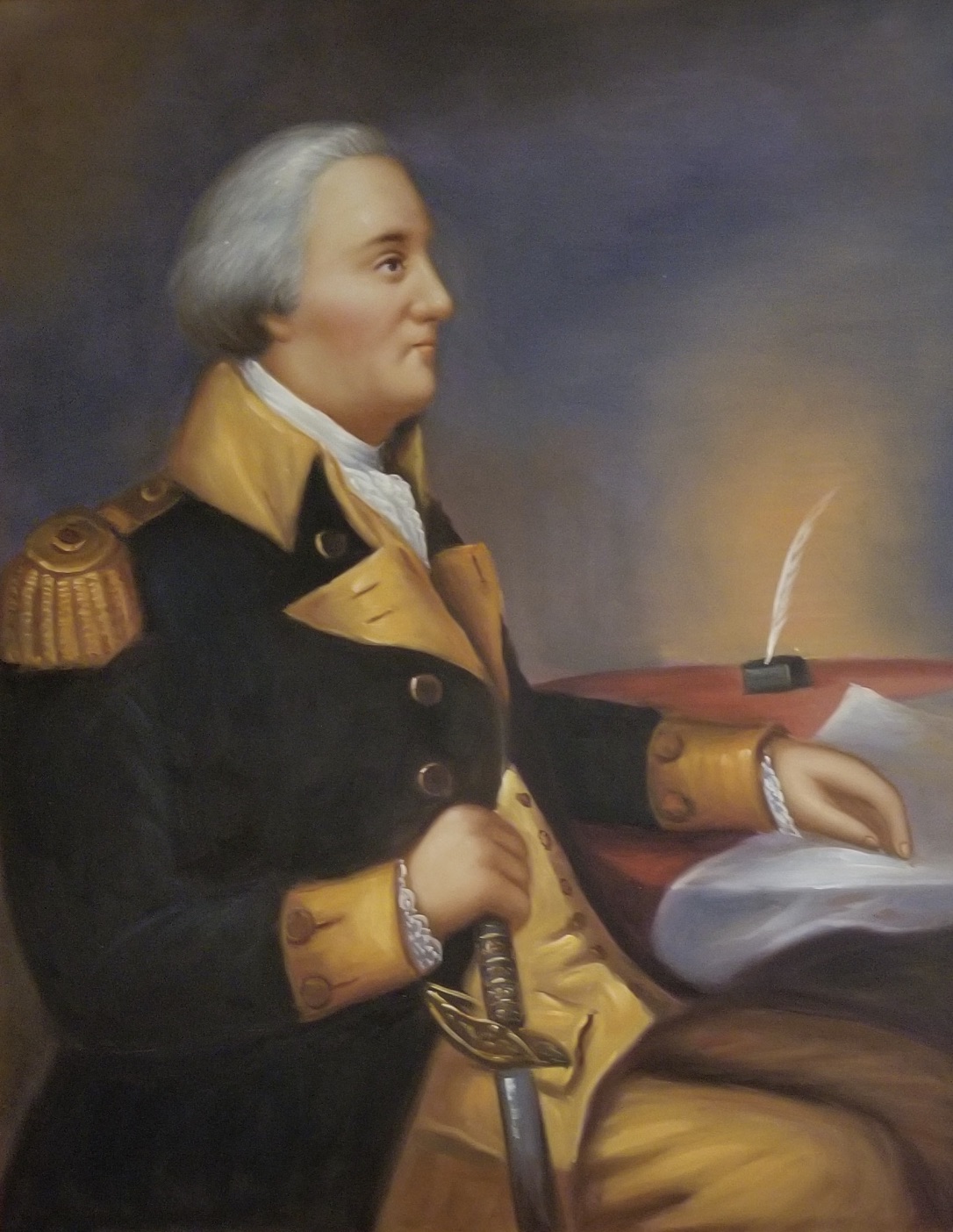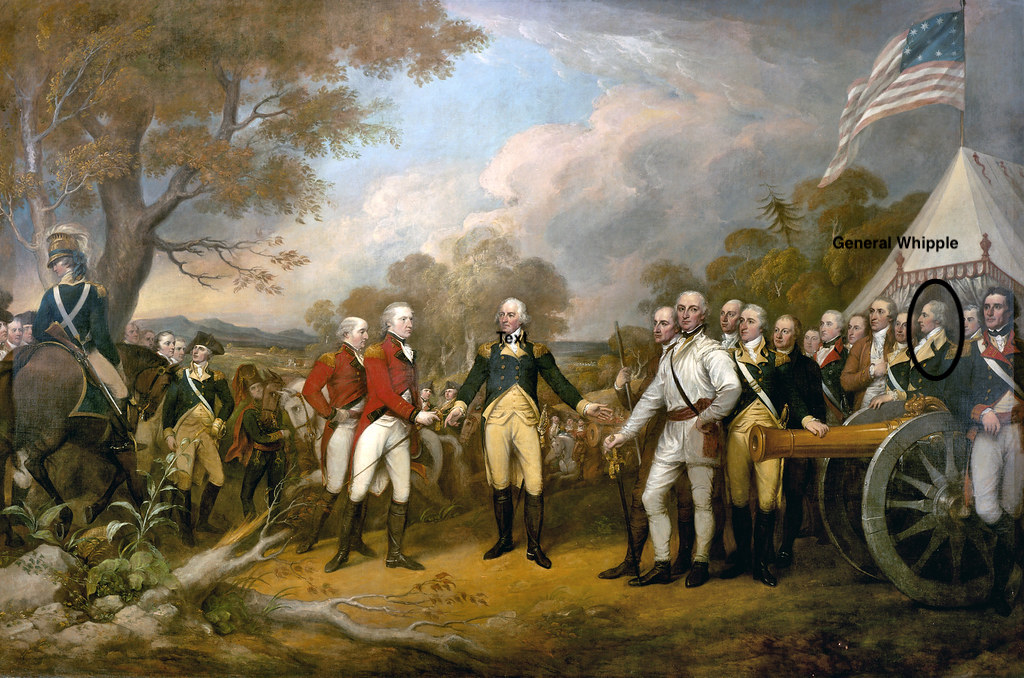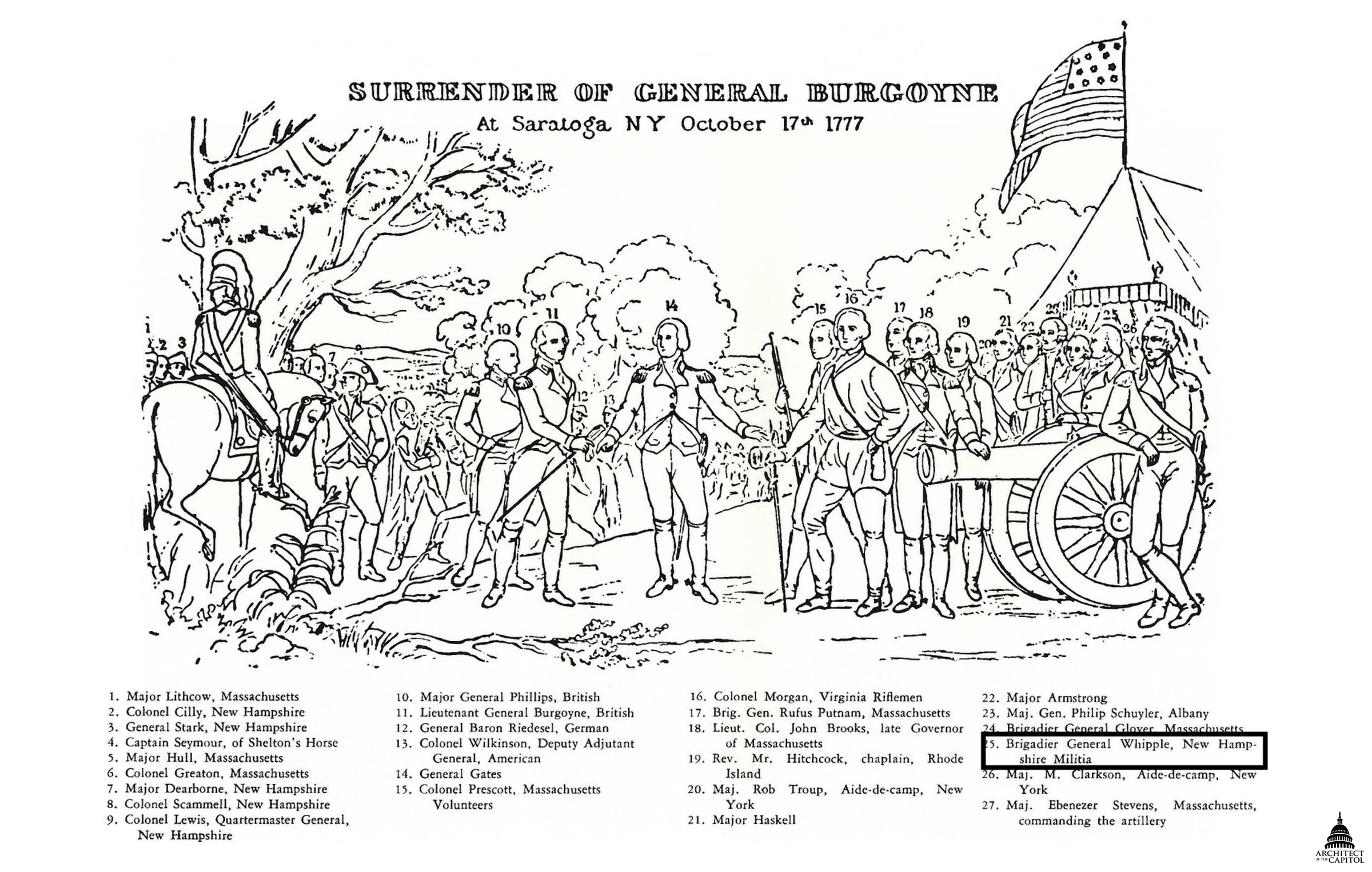Whipple was a former sea captain born in Kittery, Maine, at what is now the 88 Whipple Road Historic Homestead where Old York Chapter, NSDAR placed a plaque in 1913 and again in 2018 adding his name to the DAR database.
Whipple commanded troops during the Revolutionary War and was a member of the Continental Congress from 1776–1779. General Whipple was involved in the successful defeat of General John Burgoyne at the Battle of Saratoga in 1777.
As a result of their meritorious conduct at the Battle of Saratoga, Whipple and Colonel James Wilkinson were then chosen by Major General Horatio Gates to determine terms of capitulation with two representatives of General John Burgoyne. Whipple then signed the Convention of Saratoga, the effective surrender of General Burgoyne and his troops. Whipple was then appointed along with several other officers to escort Burgoyne and his army back to Winter Hill, Somerville, Massachusetts. Whipple passed the news of the victory at Saratoga to Captain John Paul Jones, who informed Benjamin Franklin, who was in Paris at the time.
General Whipple then served as a state legislator in New Hampshire from 1780–1784, Associate Justice of the New Hampshire Superior Court from 1782–1785, and a receiver for finances for the Congress of the Confederation. He suffered from heart problems and died while traveling his court circuit in 1785.




